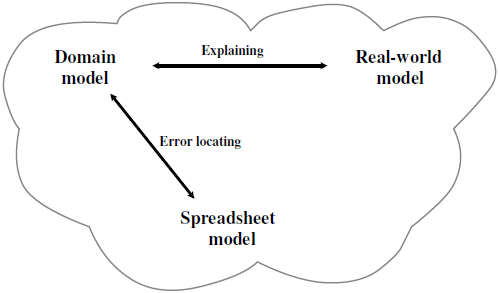Authors
Bennett Kankuzi & Jorma Sajaniemi
Abstract
In this paper, we report on an empirical study exploring the nature of mental models of spreadsheet authors when they are explaining and debugging their own spreadsheets.
Study participants were first asked to explain one of their own spreadsheets, and then to find and fix seeded errors in the same spreadsheets. Talk-aloud protocols were collected and analyzed to reveal the nature of participants' mental models in these activities.
The findings indicate that the authors explain their spreadsheets mainly in terms of real-world and problem domain concepts; in debugging, they constantly switch between problem domain concepts and spreadsheet-specific concepts, although they mainly use spreadsheet-specific concepts to fix an identified error.
These study findings provide insights on the need for developing spreadsheet authoring and debugging tools that correspond to spreadsheet authors' mental models of spreadsheets.
Sample

When explaining a spreadsheet, people think mainly in terms of domain and real-world concepts. When locating errors, they think mainly in terms of domain and spreadsheet concepts. When fixing errors, they think mainly in terms of spreadsheet concepts.
Publication
2013, IEEE Symposium on Visual Languages and Human-Centric Computing, September, pages 15-18
Full article
An empirical study of spreadsheet authors' mental models in explaining and debugging tasks
